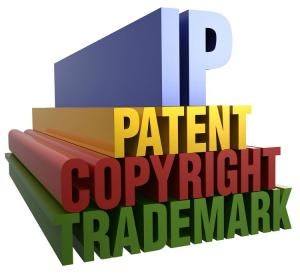Disclosing process, product, and other proprietary information is sometimes unavoidable, and manufacturers may be concerned such ideas may be stolen or shared. Beyond those basic concerns, the manner in which a manufacturer discloses ideas may actually impact the manufacturer’s future ability to obtain the relevant intellectual property (“IP”) protection. For example, launching a product where the solution is entirely in the back-end, or simply making an offer to sell or license the product may result in a loss of patent rights.
Especially recently, manufacturers have cooperated through a variety of forums, such as industry forums and legal innovation hubs, to address a variety of issues that range from international trade to the skills gap. These events promote the collaboration and the sharing of ideas. However, manufacturers naturally feel uncomfortable discussing proprietary processes and product development. In some instances, such as when seeking investors, withholding proprietary information may prove difficult. But, when disclosure is necessary, manufacturers may implement practical steps to minimize the risks associated with sharing potentially proprietary information.
Scenarios That May Require to Disclose
Manufacturers may encounter several scenarios in which they need or want to publicly disclose ideas, especially in stages of business formation, product development, or regional expansion. These scenarios may require:
-
raising capital,
-
recruiting employees,
-
entering a startup competition,
-
beta testing or experimenting with a prototype, or
-
publishing a white paper or thesis.
For new or expanding manufacturers, raising capital may be a necessity. In order to attract an investor, however, the manufacturer may need to explain how its product or process stands apart from competition. In doing so, the manufacturer may publicly disclose its key solution. While a Non-Disclosure Agreement between the investor and the manufacturer may help keep the idea confidential, investors rarely sign such documents.
When recruiting partners, employees, or contractors, disclosure may similarly be an issue. To identify and recruit talented, experienced, and passionate candidates, manufacturers often have to disclose at least some sensitive information. Typically, candidates may not be willing to enter into a confidentiality agreement before deciding to join. Furthermore, such agreements may be challenging to enforce against prospects located in jurisdictions with a weaker legal system.
For startup manufacturers, given the exploding popularity of technology incubators, shared offices and other co-working arrangements, owners may bounce their ideas off of fellow entrepreneurs in a collaborative environment. Some technology incubators even require applicants for rental space to share their concept with other tenants for peer rating and review in order to create dynamic environments and maximize the potential for innovation.
In these and other scenarios, it may be worthwhile to pursue IP protection in the form of a patent, copyright, or trademark in order to preserve the startups rights.
IP Tools at Your Disposal
A manufacturer can work with an IP attorney to devise a strategy that minimizes risks due to public disclosure, while providing the manufacturer with the freedom and flexibility to confidently attract investors, recruit team members, receive feedback, and test their product.
-
Execute Confidentiality Agreements that cover the nature of the disclosure and include jurisdictionally relevant provisions. As noted above, many will not sign such agreements.
-
File a patent application to mitigate the consequences of any unintended prior disclosure, or future public disclosure. Filing a patent application also allows the manufacturer to notify others that their solution is “patent pending,” which may be a barrier to entry for potential competitors.
-
File a patent application on any recent, important improvements to the product, thereby providing the manufacturer with some IP protection even if the original product was publicly disclosed more than a year ago.
-
Register trademarks and copyrights to add value to the startup before pitching to prospective investors, and prevent others from stealing commercially valuable marks.
-
Ensure that (a) all documents are marked as confidential and physically locked, (b) electronic systems are secured with adequate encryption and authentication, and (c) confidential information is always discussed in private.
By affirmatively taking the appropriate steps to keep ideas secure and maintain IP rights, even in the face of disclosure, the manufacturer can focus on bringing their solution to market.




 />i
/>i

